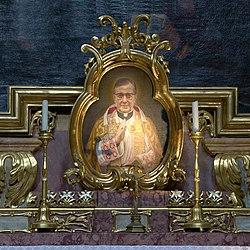My husband and I go to the Vigil Mass at our parish. Our pastor delivered a fine homily yesterday. It was based on the Gospel story of the woman taken in adultery.
He made a point that I’ve often thought myself, that the woman in this story was set up. You catch someone in “the very act” of adultery by being there. This outrage of the scribes and pharisees, which included demands that a woman be stoned to death, was fake outrage.
The pharisees were so zealous to entrap Our Lord that they were willing to entrap and murder this poor woman along the way. I’ve always thought that the man with whom she had been caught in “the very act” of adultery was probably standing there with them, stones in his hand, ready to throw.
Such is the “mercy” of legal beagle clerics who care more for the trappings of religion than they do for the call to holiness that applies to every single person on this planet. They are so intent on following “the rules,” so focused on, as Jesus said, “cleaning the outside of the cup” that they leave the inside, which is their own souls, “filthy — full of greed and self-indulgence.”
I know because I’ve done it that human beings are capable of convincing themselves of anything. We can convince ourselves that we are holy. We can convince ourselves that our “personal morality” is, in fact, actual morality. We can make ourselves believe that our obsessions and fixations on the appearance of things truly are more important than their substance. We can, as these teachers of religious law did, forget our own sins and focus on the sins of others to the point of stoning them to death.
Today’s Gospel story has often been used against Christians by people who do not believe in Jesus and who do not follow Him. They confuse its meaning to say that we should go along with them in claiming that their sins are not sins and that, in fact, there is no sin. They want to twist the story to mean that their “personal morality” is, in fact, actual morality.
I don’t think that is what Jesus meant when He said, “Let him among you who is without sin cast the first stone.” The scriptures record the tantalizing but unexplained fact that Jesus knelt and wrote in the dust while He was speaking.
What was He writing? Was He perhaps writing the name of the man who had been with the woman when she was taken “in the very act?” Perhaps this man was the one making the demand that she be stoned. We don’t know. All we do know is that something happened that doesn’t often happen and these men became convicted of their own sins instead of the woman’s.
They dropped their stones and walked away.
This was not mercy on Our Lord’s part. It was the act that precedes mercy, which is to convict of us our own sins. We can not receive mercy for sins that we do not admit. We can not be forgiven without an understanding on our part that we need forgiveness.
The pitiful scribes and pharisees did not stay around to get the mercy they needed. They did not say, as Peter did, “have mercy on me Lord, for I am a sinful man.” They dropped their stones and went away to plot other evils for other days. They were temporarily foiled in their evil, not converted to the light.
But the woman, the sinful, terrified woman whose death would have been nothing more than a means to an end for these sin-sick priests, what became of her? Again, we don’t know for sure. Was she the Mary Magdalene who stood at the foot of the cross and who was the first one to see the risen Christ? Many people think so. Was she the woman who kissed Jesus’ feet and washed them with her tears while he was at dinner with a Pharisee? Maybe.
All we know for sure is what Jesus said to her. I do not condemn you, he said. Now go, and sin no more.
He didn’t tell her that what she’d been doing, how she’d been living, was right. He didn’t tell her that she was without sin. He told her, “sin no more.”
That is God’s mercy. It is the mercy that does not lie to us by letting us slide past the reality of our sins. But it is a mercy that also doesn’t equate us with our sins. We are more than the evil we do. We are the errant children of the living God Who will always forgive us when we go to Him in humility and remorse for what we have done, but who will never do us the great disservice of telling us that what we’ve done is ok.
God tells us, like I told my own children, “Don’t do it again.” Don’t run in the house and break the lamp. Don’t hit your brother with a stick. Don’t commit adultery, lie, cheat, steal, rape or kill. Don’t do it again.
That is the mercy of God. It is not the namby-pamby self-referencing whatever-is-popular-is-not-a-sin mercy our culture teaches us to demand of Him.
To obtain God’s mercy, we have to do more than put down our stones and go away to plot more evil. We have to want to change. Because, when it comes to our sins, He will always tell us, “I forgive you. Now don’t do it again.”












